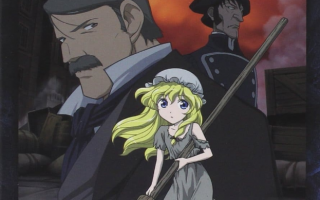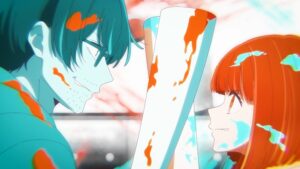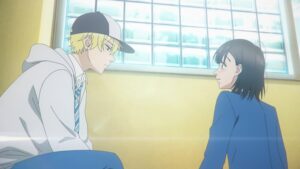(This review is solely based on the GameBoy Advance version, which many say is the best version of the game. I will mention the Pixel Remaster version a bit, as I started playing that recently, which is why you see screenshots for that edition here)
When people ask what they consider to be the worst Final Fantasy game, or the one that they like the least, chances are you’ll get three answers: Final Fantasy V, Final Fantasy VIII, or Final Fantasy XIII. The first three happened to be the most controversial games to come out during the 90s-2000s, especially in America. Final Fantasy V, coming after the more well-liked FF4 and just before the revered Final Fantasy VI, was considered to be too comedic and light-hearted for a franchise that many praised for daring to be dark, gritty, and going against the boundaries of what could be shown in video games during that time. It didn’t help that the version that got ported was the PS1 version, which was not only not a very good port on its own, but the English translation it got was universally panned for being shoddy and generally awful across the board. Now, I’m not entirely involved with the fandom, so I don’t know if this opinion has changed much, but I have played some of the games, only completing three, this being one of them. In all honesty, I really don’t think Final Fantasy 5 is as bad as people are making it out to be.
The story begins when a young traveler, Bartz, sees a meteor plunge into the forest near the kingdom of Tycoon. Yes, there’s actually a kingdom called Tycoon. There, he meets two new friends, Lenna, the second princess of Tycoon searching for her missing father, and Galuf, an elderly man with amnesia. The three of them, along with a pirate named Faris who joins them later, find that the four crystals that sustain the world are under attack as part of a dark knight’s plan to escape imprisonment. Said dark knight was previously sealed away by another band of warriors after coming close to fulfilling his objective, but with his return imminent, the new quartet needs to stop him and save not just one world, but as it turns out, two.
One thing people who played the game back in the day remember about it is its gameplay, mainly the job system. When you have the main quartet purify the crystals, the characters gain the ability to acquire job classes and switch them around whenever you feel like it, and there are lots of job classes to go around. You can either have a full team of white mages or fighters, or you can have your characters be a variety of different job classes. Furthermore, leveling up and mastering each job class can give the characters they’re assigned to a lot of stat boots and passive skills that can really help you out. Each job has their own strengths and weaknesses, and some jobs are better than others. From a gameplay perspective, FF5 is very versatile and a lot more fun than it seems at first glance. The many jobs also give FF5 a lot of replay value, in that you can replay the game having the characters utilize many different jobs on different playthroughs. Granted, FF5 isn’t the first game to do this, as Final Fantasy 3 technically did it first, whereas FF5 basically expanded upon the job customization mechanics FF3 introduced. Basically, FF3 walked so FF5 could run, and boy did FF5 run!
The graphics also are pretty good by GBA standards. Since I only played the GBA version, I’m not familiar with the graphics for the original SNES game, so I’ll only be talking about the GBA version. It uses the same style as all the other Final Fantasy games that were ported to the GBA, and it works well here. One detail I like is that every character has a unique sprite and costume for every job, which looks cool in addition to changing up the gameplay, which was impressive for an SNES game at that time. The spritework in general is much more expressive and detailed this time around, an improvement over the original FF4 (any version that’s not the PSP version, that is), and the monster sprites, which were already really good in the SNES version, were re-used for the GBA and Pixel Remaster, which tells you how good they are. I don’t think I need to elaborate on how good the soundtrack is, because what can I say about Nobuo Uematsu’s music that hasn’t been said already? I do enjoy the orchestral rearrangements for the Pixel Remaster version, so that’s another point in FF5’s favor.
FF5 has a cast of four characters, and you only get to play as those characters, though one of them gets replaced with another halfway through. While they’re not as fleshed out and three-dimensional as later Final Fantasy ensembles would be in later games, I still found them to be charming, interesting, and fun to follow, and the group develops great chemistry as the game goes on. They still get some degree of character development, so they’re definitely not lacking in personality. And yes, Gilgamesh steals the scene every time he appears. I do find it interesting that after the game’s halfway point, it basically becomes the only FF game where the female characters outnumber the males. Would that make FF5 the Final Fantasy equivalent of a harem series? But yeah, the characters and their fun chemistry manage to carry a game whose story on the surface seem cliche and rote. I actually didn’t mind the story, as while it is simple, it’s not told badly, and it actually has a surprisingly nuanced and interesting take on themes of environmentalism, which have become much more relevant nowadays considering the whole conversation about climate change and how deforestation worsens floods. Also, would you believe me if I told you that the creators of FF5 cited the movie The Dark Crystal as an inspiration for this? Honestly, that doesn’t surprise me.
My only real complaints are as follows: The method in which the final villain screws over the heroes late in the game comes out of nowhere, and one thing I don’t like about the job system is that you’re constantly forced to change your equipment every time you want to change to a new job. Axes are too inaccurate, bows and arrows require you to use two hands, which is really inconvenient, and some jobs are completely useless compared to other, better jobs. Luckily, FF5’s strengths more than manage to make up for its weaknesses. Nowadays, Final Fantasy 5 isn’t as hated as it used to be, which is good because while the game may not be as in-depth as its later entries, it still has a lot to offer. Plus, the GameBoy Advance release, with a new, slightly more comedic translation and some bonus content, helped to alleviate the game’s previously bad reputation. And since that version is the one I played, I’m inclined to agree that the GBA translation is great. It strikes a good balance between being faithful to the game, lampooning series-wide tropes in good fun, and providing some great comedy when some levity is needed without it intruding on the more serious moments. Seriously, it’s like an anime dubbed by Saban if the dub script actually showed some self-restraint! You know a translation is good when it’s subsequently re-used for the Pixel Remaster version a decade later, even if that version cut out the GBA’s bonus content.
In conclusion, I actually enjoyed Final Fantasy V. I know, such a controversial opinion, and one that I stand by. It has great sprites, an awesome soundtrack, a robust job system, fun characters that are easy to root for, and a story that, while cliche, I still managed to find enjoyable. It’s basically JRPG comfort food that still manages to be challenging if you’re up for it, and I’m totally fine with that. Whether you’re a newbie to Final Fantasy or a seasoned veteran, don’t pass up on FF5 just because it’s not as in-depth and jam packed with content as later games would be.
The post Guest Post: Unearthed Treasures with Firechick: Final Fantasy V (82/100) appeared first on Star Crossed Anime.




